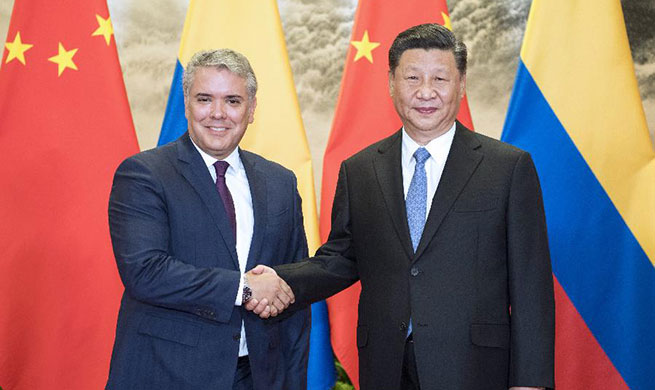VIENNA, July 31 (Xinhua) -- Austria is set to introduce a digital tax starting in 2020 that would see large Internet-based companies without a significant physical presence in the country taxed on some parts of their revenue.
The issue had been subject of debate for some time, centered in particular on the fact that such Internet giants, including Google and Facebook, could run profitable businesses with revenues earned from many different countries, while basing their operations in low-tax countries such as Ireland.
The European Union had initially proposed a three-percent "Digital Services Tax" (DST) on certain revenue streams for such companies, though in March member states could not reach an agreement on a unified approach.
Austria then decided to go its own way. In early April, it published a draft bill that would seek to apply a five-percent DST on digital advertising revenues for Internet companies with global revenues of at least 750 million euros (837 million U.S. dollars), and at least 25 million euros (28 million U.S. dollars) worth of revenues within Austria.
Under the terms, introduced by the then-coalition government of the center-right People's Party and the right-wing populist Freedom Party, the tax would come into effect on Jan. 1, 2020, assuming the original plan holds past the next federal elections in September that will see a new government installed.
The finance minister at the time, Hartwig Loeger, said he anticipated the proposed tax would bring in revenues of about 200 million euros a year.
Austria is not the only European Union member state to look at implementing its own DST, with France, Germany, Italy, Spain, and the UK also examining their options.
France has already gone one step further, with the senate having recently approved a three-percent DST, and President Emmanuel Macron signing off on the legislation.
While not specifically targeted at the large U.S. internet firms, these are the most obvious targets for the tax, and also appeared to be interpreted by the U.S. government as such.
U.S. President Donald Trump expressed his disapproval of the French move, threatening corresponding tariffs, such as on French wine imports.
France had indicated the DST was only a temporary measure, which would be lifted when a multilateral approach could be agreed upon.
It would be assumed that a similar reaction would take place should Austria go through with its own DST plans. Following the announcement of the bill, U.S. Ambassador to Austria Trevor Traina expressed his disapproval.
In comments made to the Austria Press Agency at the time, Traina said the DST plans targeted at U.S. Internet giants were counterproductive.
He argued that the reason no similar companies had originated within Europe is because there is not an adequate "climate or environment" for them to grow.
For this to happen there must be a stronger European technology sector, though presently there are obstacles for this, and the DST would also be one such hindrance, he said.
Likewise, other European countries such as Ireland and Scandinavian countries have expressed opposition for varying reasons, such as loss of revenue, and retaliations from the U.S. Some believe that the issue should be resolved at an international level, such as through the OECD.
Concerns are also present that Europe could get left behind in the digital and tech sectors compared to countries such as the U.S. and China should restrictions and over-regulation stifle investment and innovation.
While the issue has become quieter in Austria in recent months, particularly as a corruption scandal that brought down the coalition government in May has dominated headlines, and a caretaker cabinet has seen to a low-key running of the country's affairs, the gradual approach of the new year as well as a new government is set to once again bring the issue back into the spotlight.













